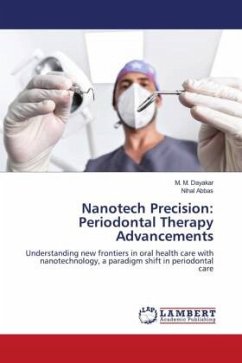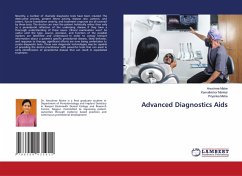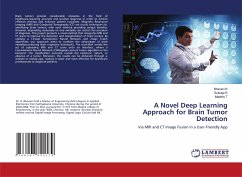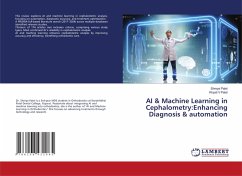
INTEGRATED META- LEARNING INTO BIOMEDICAL DIAGNOSTICS
Versandkostenfrei!
Versandfertig in 6-10 Tagen
29,99 €
inkl. MwSt.

PAYBACK Punkte
15 °P sammeln!
Meta-learning methods have to be properly applied in a wide range of healthcare settings through a huge number of theoretical and experimental studies. Meta-learning in health care remains in its infancy and has as yet not appealed to a larger scientific community, even with the developments. Additional work attempts need to be done to bridge a gap in the literature by combining existing breakthroughs and their practical applications since it is the first systematic survey targeting meta-learning within this area. The scope of the adaptation is where meta-learning also diverges from base learn...
Meta-learning methods have to be properly applied in a wide range of healthcare settings through a huge number of theoretical and experimental studies. Meta-learning in health care remains in its infancy and has as yet not appealed to a larger scientific community, even with the developments. Additional work attempts need to be done to bridge a gap in the literature by combining existing breakthroughs and their practical applications since it is the first systematic survey targeting meta-learning within this area. The scope of the adaptation is where meta-learning also diverges from base learning. Whereas its acquisition is all about acquiring proficiency in a number of learning tasks, base-level acquisition is aimed at acquiring knowledge in one particular learning task. These are data integration across heterogeneous modalities, model interpretability, privacy and security, and real-world scalability optimization. Addressing these areas will enable meta-learning to become a foundation of the next generation of healthcare technologies, providing more accurate, personalized, and efficient diagnostic systems that can ultimately lead to better patient outcomes.












